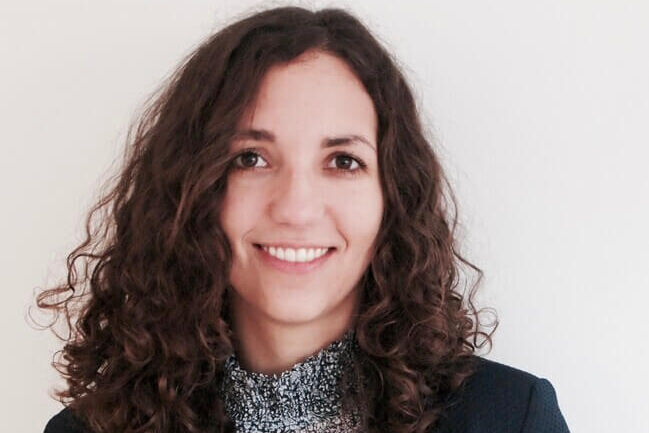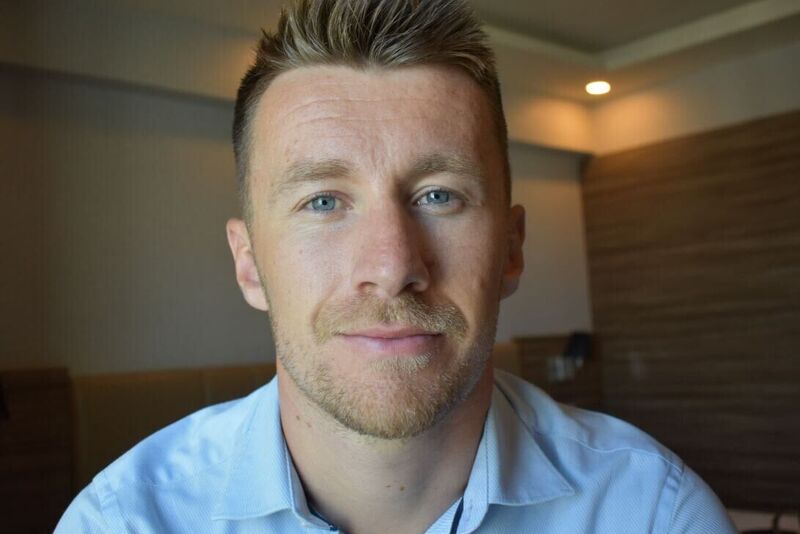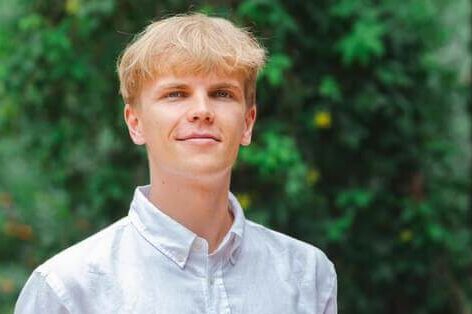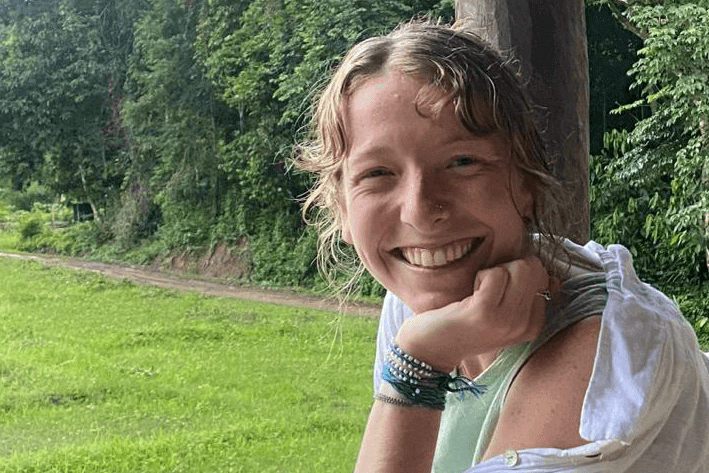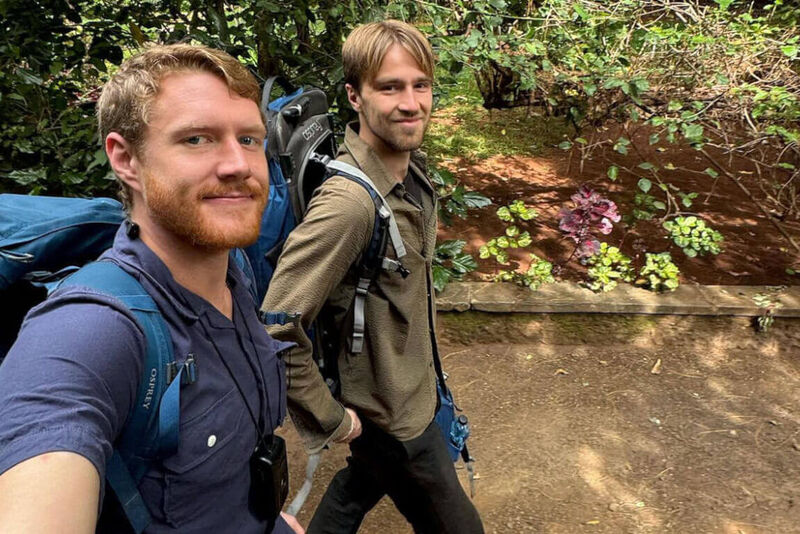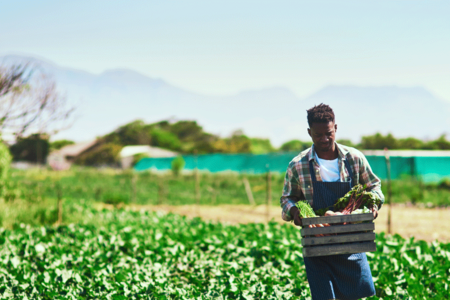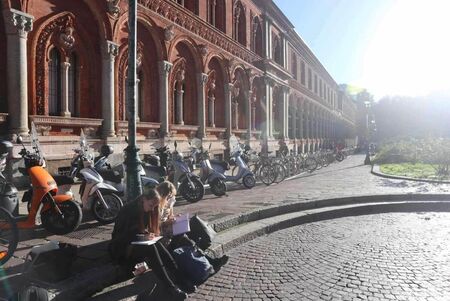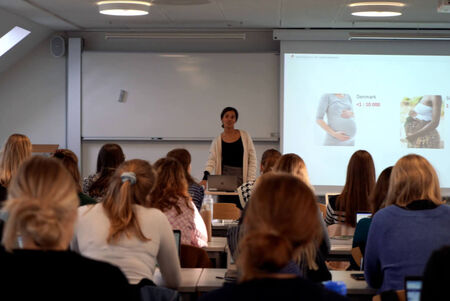About the programme
Globalization has fundamentally changed living conditions worldwide, significantly impacting regions within the Global South. While massive economic growth in emerging markets and other economies has lifted billions of people out of poverty, many continue to face poverty and unequal conditions. The master's program in global development enables graduates to understand, analyse and address these complexities within our world.
What makes the programme at UCPH unique?
The master's program in global development enables graduates to understand, analyse and navigate the new globalized reality. This program offers an international scope, reflected both in its curriculum and the diverse cohort it attracts, enriching the learning experience with a variety of cultural perspectives and networking possibilities.Who studies this programme?
You can be admitted to the Global Development program if you meet the entry requirements. Typically, students have an interest in international development, social sciences, economics, environmental studies, and global politics. You can read more about the application and admission process further down the page. As a graduate of the MSc in Global Development, you can pursue careers in international organizations, NGOs, and private companiesConsidering studying at UCPH this September?
Apply by 15 January if you are an applicant from outside the EU/EEA/Switzerland. Apply by 1 March if you are from the EUAdmission and application
To apply for admission to this master's degree programme, you must have completed a qualifying bachelor’s degree or a similar Danish or international degree programme which is assessed to be relevant. Apply for admission via the application portal.
Below, you can read more about admission requirements and which documents to upload in the application portal.
Academic admission requirements
Here you'll find the different academic requirements depending on which qualifying degree you hold.
Academic admission requirements
In order to be admitted into the Master’s programme in Global Development, applicants must fulfil the following requirements:
- A bachelor degree anthropology, economics, geography, geoinformatics, natural resources, political science, public health, sociology or urban, energy and environmental planning from a Danish university, or
- A bachelor degree from a recognised university equivalent to the above BSc degrees
- The bachelor degree must contain a minimum of 15 ECTS of qualitative and/or quantitative methods. Please read more Qualitative and/or Quantitative Research Methods requirement below.
- English language proficiency corresponding to at least the Danish upper secondary school ‘English level B.’
Although knowledge of specific software is not a formal requirement for admission, prospective students should notice that the Stata software is frequently used in the first year at Global Development. We encourage students who are admitted to Global Development to familiarize themselves with the basic logic of the Stata software before semester start.
Degrees that do not qualify for admission are:
- Communication and Media studies (including business communication)
- Journalism
- Language studies
- Psychology
- Tourism studies
- Art studies
- Social Work
- Science degrees (biology, chemistry, mathematics etc)
- Engineering
- Graphical Design
- Public Relations
- Pharmacy
- Law
Please note that these degrees do not qualify regardless of relevant experience, letter of motivation etc. If you hold one of these degrees please do not apply as your application will not be taken into consideration.
As a rule of thumb, a degree based in the humanities does not qualify. These include History, Philosophy, Literature, Cultural studies and Area studies (African Studies, American Studies, etc.). However, applicants whose humanities based degree contains half or more of ECTS/credits within the social sciences might be taken into consideration.
Language requirements
You are required to document that you fulfil the language requirement English B, unless you have a legal right of admission to the programme you are applying for.
Please note that you must have the documentation ready by the application deadline.
Qualitative and/or Quantitative Research Methods requirement
Applicants to the MSc in Global Development must prove that their qualifying Bachelor's degree contains a minimum of 15 ECTS credits in qualitative and/or quantitative research methods within the Social Sciences.
Issues relating to Global Development can be studied from a number of different angles, and it is necessary to be familiar with both qualitative and quantitative ways of collecting and analyzing data when studying and working in the field. It is, thus, a requirement that applicants prove that they have qualifications within qualitative and/or quantitative research methods. This includes both research design and application of qualitative and/or quantitative research methods within the Social Sciences.
The main requirement is that they provide knowledge of the characteristics of the different methods and how to apply the methods to study a given subject area. Moreover, they must document the ability to consider any given study or data set critically on the basis of the applied method of data collection and analysis.
Typical content of courses within qualitative and/or quantitative research methods (one or more of the following):
- An introduction to research design within the Social Sciences in general and related reflections on research questions, choice of research method, data collection, and analysis.
- Thorough and nuanced knowledge of the possibilities and limitations in using qualitative and/or quantitative research methods.
- Data gathering, pre-processing, and analysis using statistical software (such as SPSS, Stata, SAS, or R).
- A thorough introduction and practical experience in conducting qualitative interviews and content coding interview material.
- Introduction to qualitative methods other than interviewing such as participant observation, ethnographic field studies, or discourse analysis within the Social Sciences.
Each applicant is required to write a short description (approximately 1-2 pages) of how the requirement of 15 ECTS of qualitative and/or quantitative research methods within the social sciences is covered in the qualifying bachelor degree.
In order to get a thorough assessment the applicant is encouraged to write specific how the applicant meet this criteria. This is done by using an official course description and at the same time explaining how much the course focused on qualitative and/or quantitative research methods.
Some applicants have taken specific courses which covers this criteria. These courses often bear the title of “qualitative/quantitative/research methods”, but could also have other titles.
Other applicants have used quantitative and/or qualitative research methods as part of their studies even though they have not taken a specific methodology course. For example as part of a theme-based course or final project during their bachelor degree.
Examples of quantitative research methods within the social sciences:
- Descriptive statistics
- ANOVA
- Econometrics
- Linear Regression (OLS)
- Logistic regression
Examples of qualitative research methods within the social sciences:
- Semi-structured interviews
- Focus Group Discussions
- Participatory Rural Appraisal
- Case studies
- Participant Observation and Ethnographic Field Studies
Examples of what is not considered as qualitative and/or quantitative research methods in social science:
- Historical methods
- Qualitative methods in legal studies
- Philosophy of science
Application deadlines
Study start in September
1 March at 23:59
Application deadline for Danish applicants and applicants from within the EU, EEA and Switzerland.
Open for applications from 16 January. You will receive a reply by 10 June.
15 January at 23:59
Application deadline for applicants from outside the EU, EEA and Switzerland.
Open for applications from 15 November. You will receive a reply by 13 March.
Application procedure
Before you apply to the master's degree programme in Global Development, please make sure to acquaint yourself with all the important information on the application procedure, application deadlines and details about how to apply.
Please be aware that during the program there will be a mandatory field trip, which involves an additional a cost of app. 15.000-18.000 DKK which is not covered by the University of Copenhagen. Currently we do not offer any travel scholarships for the field trip.
Select an option below to read more about your application.
If you are a citizen in Denmark, EU, EEA or Switzerland
If you are a citizen in a country outside EU
Have you been enrolled before?
How your application is assessed
Prioritisation of applicants
As the Master’s degree programme only admits a limited number of students each year, meeting the admission requirements does not in itself guarantee admission to the programme. Allocation of student places is based on an overall assessment.
If more applicants than the maximum intake allows for fulfil the admission requirements, a selection will be made on the basis of a comprehensive evaluation, with emphasis on the following criteria:
- We give a higher priority to students having personal international experience relating to global development (studying, working, volunteering abroad or in development programs).
- We give a higher priority to statements of personal international experience showing how the personal experience of candidates is relevant for our programme in Global Development.
- Good grades achieved for bachelor courses relevant to the MSc in Global Development.
- Priority is given to candidates with the most recent bachelor's degree. However, if your degree is only a few years old this will not disqualify you, especially if you have used the time to gain relevant experience related to global development.
Any improved grades are not considered. This is due to the fact that in Denmark it is not possible to improve grades in courses that has already been passed on the Bachelor's degree programme. Thus, if you have been awarded more than one grade in the same course, we will only consider the grade that you were awarded the first time that you passed the course when calculating your grade point average.
All applicants from non-Danish universities must, consequently, upload a complete transcript showing all examination attempts, the date of each examination attempt and the appurtenant exam result. If the applicant is unable to obtain a complete transcript from the home university, a confirmation that the applicant's transcript does not contain improved grades issued by the current home university is required instead.
Random checks of the applicant's basis for admission may also be made to the home university. In the case of admitted students, any fraudulent information in terms of grades may result in the student being deregistered from the degree programme in case of admission without entitlement.
However, any grade awarded on the basis of an appeal against the original grade will be considered. In this case, it must be clearly stated that this is an improved grade as a result of a complaint. Any such grade must be made available to the Faculty no later than the deadline for applications. Otherwise, the grade can only be considered in subsequent application rounds.
Random checks of the validity of international exam results will be carried out.
If you are in doubt about the rules or have questions about your entry qualifications please contact Student guidance.
If you already have a master's degree from Denmark or another country, you can, in principle, only be admitted to a new degree programme if there are places available on the programme for which you are applying for admission (the master's degree admission rule).
In exceptional cases, we may grant dispensation from the master’s degree admission rule. Read more about the master's degree admission rule and the possibility of applying for dispensation here.
| Admission statistics Global Development 2025 | |
|---|---|
| Admitted (of which have start in February) | 53 (0) |
| Admission distribution (legal right/other) | 0% / 100% |
| Applicants | 436 |
| Age average | 25 |
| Nationality (dk/international) | 25% / 75% |
Programme structure
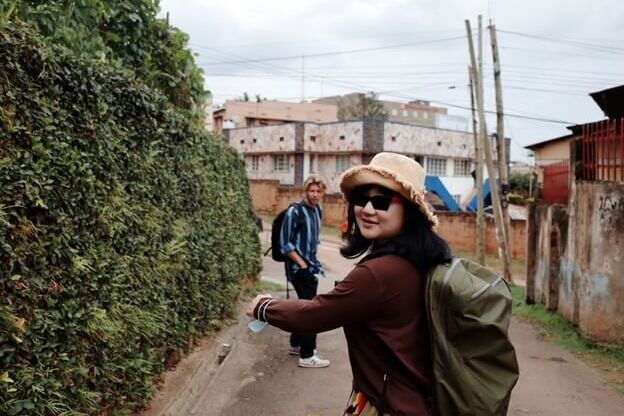
The MSc in Global Development at the University of Copenhagen is a two-year programme taught in English.
The first year consists of seven compulsory courses including the mandatory field course in a low or middle-income country. All students undertake fieldwork in the same location.
The second year is a year of specialisation wherein the fourth semester is devoted to your master’s thesis.
Students enrolled in the programme September 2024 will follow the structure below:
| Part of the semester | Part 1 | Part 2 | ||
|---|---|---|---|---|
| 1. Semester | Applied Research Methods (7.5 ECTS) | Global Politics (7.5 ECTS) | Global Development: Theories, Facts and Current Issues (7.5 ECTS) | Transnational Actors, People and Placemaking (7.5 ECTS) |
| 2. Semester | Interdisciplinary Field Research (15 ECTS) | Social Science Perspectives on Climate and Development (7.5 ECTS) | Global Business and Economics (7.5 ECTS) | |
| 3. Semester | Study abroad, internship and/or courses within social sciences (30 ECTS) |
|---|---|
| 4. Semester | Thesis (30 ECTS) |
Elective Courses at the University of Copenhagen
At their third semester many students chose to specialize within a field. In the following you find examples of courses within various thematic areas.
Climate
Climate Change Impacts, Adaptation and Mitigation
Environment, Society and Development
Political Ecology
Geopolitics of Climate Change
Urbanization
Urban Ecosystems: Structures, Functions and Designs
The Dynamics of City Regions: Social and Economic Change
Transformation of Cities and Landscapes: Globalisation and Local Strategies
Conflict Analysis and Negotiation Design
Theories of Urban Design
Migration
Those who have and those who dont - Critical citizenship studies, migration and democracy
Migration, Cultural Diversity, and Gender
Ethnographic Approaches to Migration Issues in Scandinavia
Migration, Refugees and citizenship in a Globalized World
Humanitarian aid
Preparedness and Response to Humanitarian Crisis
Disaster Recovery Planning and Development
Disaster Risk Management - From Theory to Practice
Health in Emergencies and Refugee Health
Within anthropology:
- Anthropology of the nation – border making in everyday life
- Digital identities
- Economic Anthropology
- Ethnographic approaches to migration issues in Scandinavia
- Medical Anthropology, advanced course
Within sociology:
- Gender, sexuality and social class
- Authoritarian Regimes and Contentious Politics
- From Proletariat to Precariat: The working class in a Global World
- Issues in International Development
- Those who have and those who dont - Critical Citizenship Studies, Migration and Democracy
- Demographic Analysis for Social Scientists
- Sociology in the age of Big Data
- Problematization Analysis: How and Why something is and became a Social Problem
- Applied Multilevel Analysis: Immigrant Integration and Xenophobia
- Re-tooling Social Analysis: Behaviours, Networks, Ideas in the digital age
Within political science:
- Trust and distrust in International Relations
- The international community in fragile states - doctrine, experience, critique
- Politics of Crisis and Austerity
- Ethnography and Political Science
Within economics:
- Advanced Development Economics - Macro Asp.
- Advanced Macro Structural VAR
- Advanced Microeconometrics
- Advanced Macro Business Cycles
- Behavioural Finance
- Contract Theory
- Corporate Finance and Incentive
- Corporate Finance Theory
- Economics of the Environment,
- Family Economics
- Financial Econometrics A
- Health Economic Evaluations
- Health Economics
- Macroeconomics III
- Microeconomics III
- Monetary Policy
- Political Economics
- Public Finance
- Science of Behaviour Change
Within geography:
- Globalisation and Dynamics in Global Value Chains
- Rural-urban Connections in the Global South
- Rural Livelihoods, Vulnerability and Adaptation
- Production and Regulation of Landscapes: Globalisation and Local Strategies
- International Migration
- Environment, Society and Development
- Land Use Transitions in the Global South
Within food and resource economics and nutrition:
- Agricultural and Food Policy
- Agricultural Value Chains in Developing Countries
- Property Matters
- Tropical Forests, People and Policies
- Rural Livelihoods and Natural Resources Governance
- Studies in Development Economics
- The Economics of Globalisation
- Global Environmental Governance
- International Nutrition and Health
- Ethics, Environment and Society
- Environmental Justice
- Advanced International Trade
- Applied Econometrics
Within African studies:
- Nature, Population and Society in Africa
- Economic Development in Africa
- Urban Africa – the 21st Century African City
- Non-state Social Order: The State and its ‘Outside in Practices of State-building
- NGOs, Civil Society and Development in Africa
There are of course many other courses to chose from. The following list is an indication of the possibilities; not all the courses are offered each term. You can find many more courses in the course catalogue for the current semester.
It is possible to study abroad as part of your MSc in Global Development. You may choose to study abroad for one semester or for a shorter period of time, for example by attending a summer school. You are allowed to study a maximum of 30 ECTS points abroad as part of your degree.
Studying abroad has many benefits both professionally and personally: You broaden your intercultural understanding, you are introduced to different study methods, and you obtain new knowledge and new insights.
As an international full degree student, you have the opportunity to study abroad using the extensive number of exchange agreements with universities worldwide. Further information about the exchange programmes and partner universities is available through the International Office.
Why Study Abroad?
One of the main objectives of studying abroad is to broaden your academic knowledge and network. It is a good idea to seek advice from lecturers and student advisors when planning your studies abroad to find out where to go and how to structure your academic programme. Your lecturers may have academic input and international contacts, and may also be able to provide you with useful references.
As an MSc in Global Development student, you have the opportunity to do an internship as part of your programme. The internship may take up 15, 22,5 or 30 ECTS of your third semester of studies. To set up an internship, you must design a protocol and plan for the internship, which must then be accepted by your supervisor as well as by the host company/organisation/institution and/or local authority.
An internship has several mandatory components:
- a work plan developed prior to commencing the internship
- working under supervision in the field, in an office or in an archive with a project or programme related to global development
Internships all over the world
Our students are doing internships all over the world and in all types of organizations and companies. On this map you can see the location as well as host organization for some of the current and previous internships at Global Development.
This course ‘Interdisciplinary Field Research’ builds on previous courses, especially ‘Advanced Research Methods in the Social Sciences’. This course takes these ‘methods’ into actual ‘techniques’ in the field. The course consists of 15 ECTS.
Data are conceived, identified, gathered, structured, and analyzed in complex situations. The main objective of this module is to equip the students to navigate and collect data in real world situations. Students should gain knowledge about:
- the range of techniques employed to collect social scientific data; and
- how methodological choices affect the production of knowledge.
In addition to readings and lectures, students will learn through developing and undertaking a short research project in the field. In doing so, they will experience the difficulties, trade-offs and limitations of different data collection methods.
In order to get as close as possible to a realistic experience of real world data collection, the module is explicitly interdisciplinary and problem based. The course will present a theme, decided by the study leaders, within which teams of students will choose a specific research question. The centerpiece of the module is a 2 week field course, inserted between 3 weeks of preparation and a 3 weeks report writing and final evaluation.
After completing this course students should be able to:
- describe and define central concepts encountered in academic debates around data collection in the social sciences;
- show an understanding of a range of qualitative and quantitative field data collection methods;
- design a research plan for field study, incorporating selection of relevant methods;
- critically analyze the validity of different data collection research methods;
- collect and process relevant information in the field;
- judge the reliability of collected data as well as the significance of obtained results;
- discuss and compare data obtained by various methods in interdisciplinary fieldwork;
- use and interpret data to shed light on complex topics; and
- concisely communicate research findings.
Course structure
The course will be undertaken on a full-time basis over 8 weeks. This will involve 3 weeks of preparation methods training and research preparation; 2 weeks of field work; and 3 weeks of report writing and a final evaluation. Throughout the course, students will work in groups to design, undertake and report on their own piece of field research.
During this course on the second semester, there will be a two-week field trip to a country in the Global South. All students will conduct fieldwork at the same location. This takes the ‘methods’ you have learned into actual ‘techniques’ in the field. You will conceive, identify, gather, structure and analyse data in complex situations. The main objective of this trip is to equip you to navigate and collect data in real world situations.
Please be aware that the university will arrange accommodation, but you must book your own transportation. This field trip is mandatory and costs approximately 15,000-18,000 DKK, which is not covered by the University of Copenhagen. Currently, we do not offer any travel scholarships for this trip.
The location and theme of the fieldwork will vary on an annual basis. Locations and themes will be chosen to represent the breadth of the scope of the overall education. There will therefore be field courses in Latin American, African and Asian contexts, as well as in global policymaking hubs. Where possible, field courses will be carried out in collaboration with partner universities and external stakeholders in each location. The field course took place in Nepal for some years, but for the past two years, the field course has been held in Bolivia.
Programme Curriculum
If you are more interested in the academic content, regulations, and examination requirements, you should consult the curriculum, which serves as the legal foundation for the programme.
There is both a curriculum specific to each degree programme and a general curriculum that applies across the faculty.
Please note that curricula are often revised annually. Any new versions will be published no later than during the spring semester.
Career opportunities
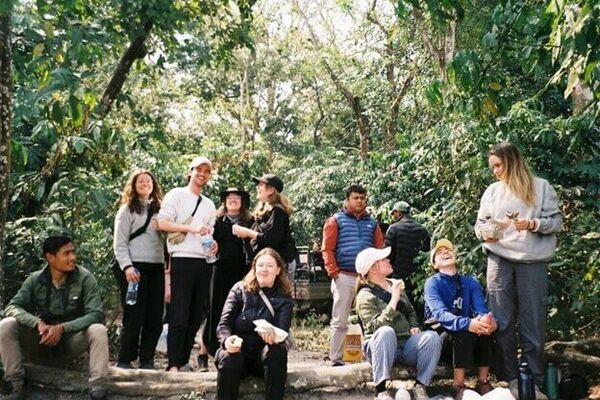
Upon completion of the master’s programme, you will obtain the title Master of Science in Global Development.
As a graduate, you will be able to:
- identify and critically analyse key factors and forces shaping the livelihoods and well-being of individuals, populations and societies at global, regional, national and local levels.
- independently analyse and evaluate policies and strategies for development and economic growth in low and middle-income societies.
- discuss cultures and social norms in the contextualisation of theories.
- critically evaluate, discuss and prioritise among key methodologies with regard to validity, reliability and applicability.
- communicate and discuss research-based knowledge, advice and decisions across cultures and on different levels to researchers, policy-makers, media, organisations and laypersons.
By combining knowledge and skills, you will be able to work effectively with cross-disciplinary problems in the area of global development on an individual basis and in teams as well as being able to provide evidence-based solutions to situations which are complex and require new approaches.
What can I become with the master in global development?
Depending on your specialisation during the second year of the programme, this paves way for several types of employment. Many candidates will go on to jobs in private companies which interact with the Global South (Africa, Asia and Latin America). Other graduates will find employment in institutions and organisations engaged in development work and other international issues. There is considerable potential for production companies, service businesses and consultants in the global markets, especially in the BRICS countries (Brazil, Russia, India, China, South Africa) and in the new growth countries, for example Indonesia, Mexico, Turkey and several African countries.
You can be working as a consultant, adviser, project manager or analyst in businesses, organisations and authorities involved in international and/or development activities. The programme can also lead to a research career within global development.
Meet current and former students at Global development
Alumni Stories
Student life
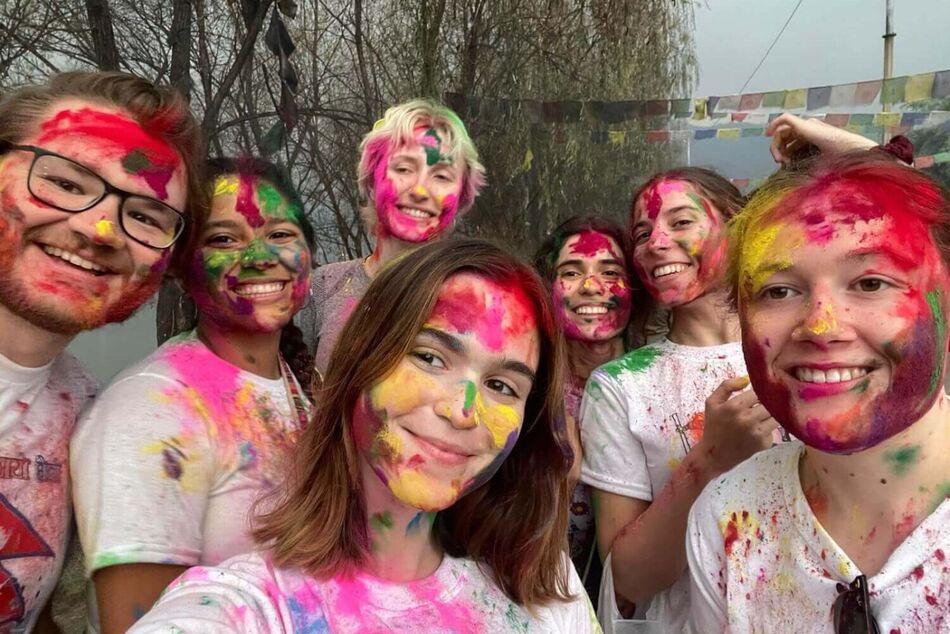
The structure of the programme with compulsory courses during the first year, group work and a three-week field course abroad ensures a lively study environment and close interaction with your fellow students.
For general information about student life and studying at UCPH, see Student life at UCPH.
Studying at UCPH
In the following video, you'll hear from Global Development student Gus Griffin. He shares his insights into student life and living in Copenhagen.
Meet current and former students at Global development
Student Experiences
Ways of learning at UCPH
Two Associate Professors and four international students share their definitions of and thoughts on what is characteristic of the University of Copenhagen. Get a general idea of: teaching methods, academic discussions, group work, planning your studies, critical thinking, research-based education and student-professor relations.
City Campus
The Faculty of Social Sciences (SAMF) is part of City Campus and is located at the old Municipal Hospital (called Centre for Health and Society, CSS) in central Copenhagen.
Contact student guidance
Questions about study choice and admission
Our student guidance are ready to assist you with answers to your questions about:
- application procedure and the digital application portal
- admission- and language requirements
- documentation
- study life
- career opportunities
- study choice or doubts
Did you not find what you were looking for?
You can find answers to questions most often asked by potential students in the FAQ. Read the FAQ
Questions about the digital application-portal?
Do you have questions about digital application? Check our user guide to the application portal.
In case of technical problems, please contact the IT-support by
- Mail: it-service@adm.ku.dk // Tel: +45 35 32 32 32
Location
- City Campus, Øster Farimagsgade 5, DK-1357 København.

